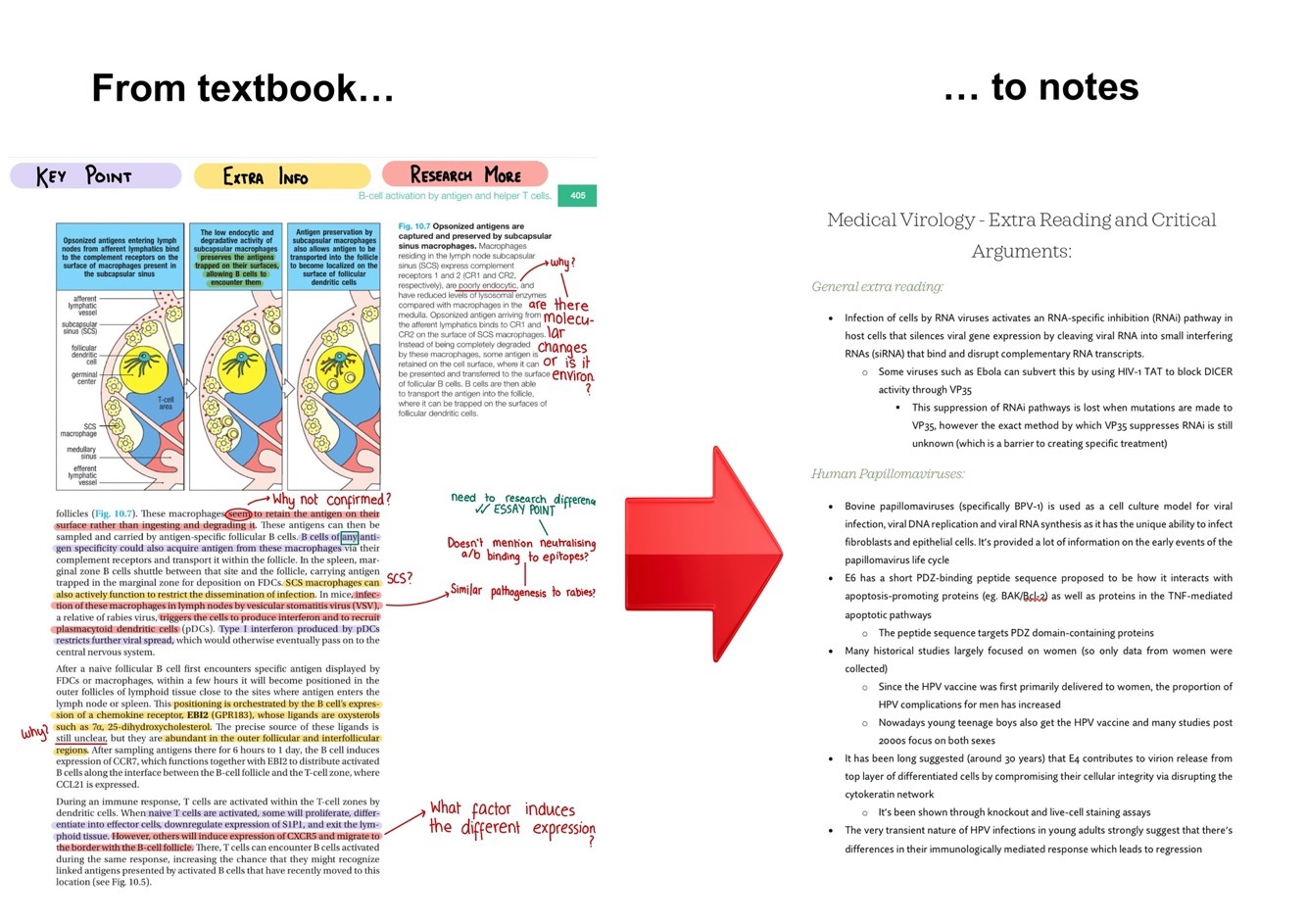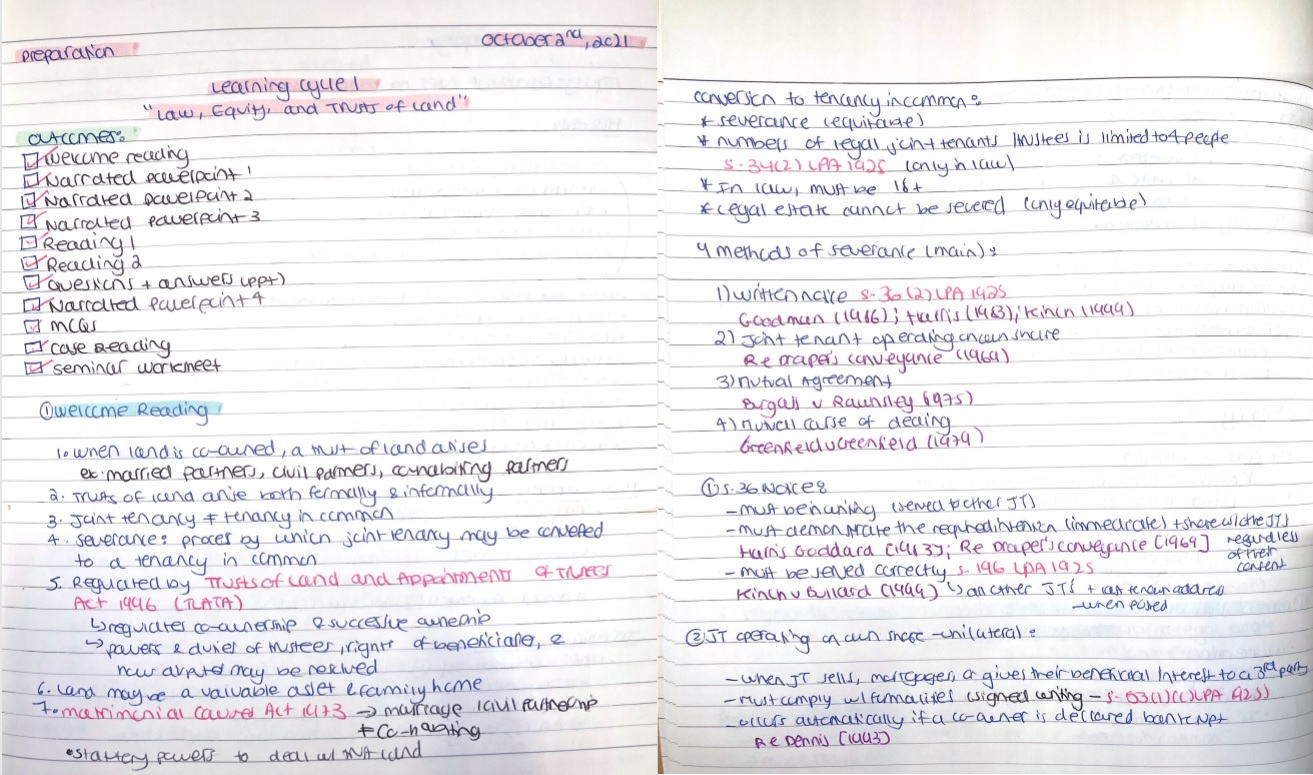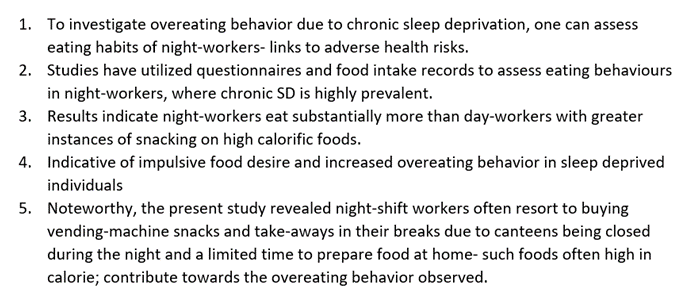 by Jasmin Rahman, Cellular and Molecular Medicine student and Bristol Futures Advocate
by Jasmin Rahman, Cellular and Molecular Medicine student and Bristol Futures Advocate
Textbooks can contain so much more content than the lecturer could ever cover in class, but the process of actually writing notes from textbooks can be mind-numbingly boring. In first and second year I often picked up these massive intimidating textbooks that my lecturers recommend, read pages of text for ages and then realised I didn’t understand any of it.
However textbooks are an invaluable resource and can be so helpful in aiding understanding of topics. To effectively learn from them means making your reading a fairly active process, hopefully these tips that have improved my experience can also be helpful for you in improving your textbook notes and making the most effective use of your time
1. Give yourself time
My main takeaway message is: There’s no ‘perfect’ amount of time or secret formula to work out how much time to spend reading textbooks and each textbook has different requirements.
However I’ve always struggled with either rushing through the recommended readings or spending hours reading just a few pages and realising none of it is particularly helpful.
Which leads me to my first tip of: Learn to skim read before starting any notes.
It’s so tempting to just dive in and start highlighting everything, but writing and highlighting the first time you read a passage isn’t effective as it’s difficult to predict whether the sentence is actually important. Main things to look out for whilst skim reading are key words (usually bolded), diagrams and sub-headings.
Finding the balance between skim reading and actual reading can be difficult at first, what worked well for me at the beginning was setting a timer for around 30 seconds a page that way I wasn’t getting caught up in details and could actively prepare for what was coming up next.
Page indexes are also so helpful in contextualising topics and quickly finding which pages to read. But one of the biggest drawbacks is that sometimes indexes can lead to massive chunks of text where the key topic you’re looking for is a tiny sentence, so I’d really recommend skim reading when doing index searches as it’s definitely saved me so much time!
2. Actively read the textbook
When faced with a big chunk of text, it’s really tempting to ‘log off’ and read passively without really digesting anything. For me, creating a highlighter ‘colour code’ was really useful (see picture) and helped to me engage with notes as you’re forced to actively ‘characterise’ each sentence as you read along.
Reading can also be so monotonous, so having questions in the back of your mind like ‘How does this fit into my lecture/across the course?’ or ‘Could this be an interesting point to include in an essay?’ can be very helpful by keeping the reading focused on the direct benefits.
Writing questions in the margins is one of the cornerstones of active reading, but I’d recommend answering any questions after you’ve finished reading rather than as soon as they pop up. For me it’s so easy going into a googling ‘rabbit-hole’ of questions and it always ends up in procrastination and having only digested about 2 sentences of the reading.
Note: I usually highlight on a tablet, however when using library books I stick a post-it note to the side of the page to note down questions and use index tabs as replacement for highlighting.

3. Make personalised notes
A huge part of learning when first trying to understand a topic is being able to recall information. So when it comes to writing notes from a textbook, be cautious that you’re not taking notes after every line by closing the textbook or by moving your eyes away and writing everything you can remember. This enables you to write notes in your own words, with the added benefit that it prevents accidental plagiarism when you’re using notes in open-book exams. For me, being selective in what I wrote has stopped me creating lots of notes directly copied from the textbook that I never actually ended up reading.
The whole purpose of notes is that they’re for you, so write them in a way that makes sense to you and is effective for your learning. As a life sciences student I find the outline method helpful, but there are so many others and if you’re unsure I’d recommend checking out the Study Skills tab on Blackboard to learn more about note-taking methods here.
These are just a few tips that have worked well for me personally and changed the way I make notes, I’d definitely recommend trying out anything that stands out to you. And good luck!


 by Tala Youhana, Law student and Bristol Futures Advocate
by Tala Youhana, Law student and Bristol Futures Advocate by Jasmin Rahman, Cellular and Molecular Medicine student and Bristol Futures Advocate
by Jasmin Rahman, Cellular and Molecular Medicine student and Bristol Futures Advocate
 by Gloria Bosi, Mechanical Engineering student and Bristol Futures Advocate
by Gloria Bosi, Mechanical Engineering student and Bristol Futures Advocate

 by Emma Ford, Bristol Futures Advocate
by Emma Ford, Bristol Futures Advocate Anaya Price is from Trinidad and Tobago and is in her second year of undergraduate LLB Law. Anaya credits the pleasure of her course to her specifically chosen modules -namely Family Law, Medical Law and Crime Justice and Society- which she feels have real-life appeal and are expressed daily in our society. As a first-time advocate, she is excited to meet new people, help, and also learn from others.
Anaya Price is from Trinidad and Tobago and is in her second year of undergraduate LLB Law. Anaya credits the pleasure of her course to her specifically chosen modules -namely Family Law, Medical Law and Crime Justice and Society- which she feels have real-life appeal and are expressed daily in our society. As a first-time advocate, she is excited to meet new people, help, and also learn from others. Tala Youhana has joined the Student Advocate team this year and looks forward to being part of a friendly team and community of students, as well as engaging with the breadth of activities we have planned. As a second-year law student, Tala values the distinction between black-letter law and the open nature of its applications to society. Tala has already shown her enthusiasm via her involvement in writing articles and running workshops for the Study Skills team. A fun fact about Tara is that she has never won a game of Monopoly!
Tala Youhana has joined the Student Advocate team this year and looks forward to being part of a friendly team and community of students, as well as engaging with the breadth of activities we have planned. As a second-year law student, Tala values the distinction between black-letter law and the open nature of its applications to society. Tala has already shown her enthusiasm via her involvement in writing articles and running workshops for the Study Skills team. A fun fact about Tara is that she has never won a game of Monopoly! Aisling Mahony
Aisling Mahony Carol Huang
Carol Huang Martina Mattioli
Martina Mattioli Sabrina Choong
Sabrina Choong by Breanna Goff, Psychology student and Bristol Futures Advocate
by Breanna Goff, Psychology student and Bristol Futures Advocate